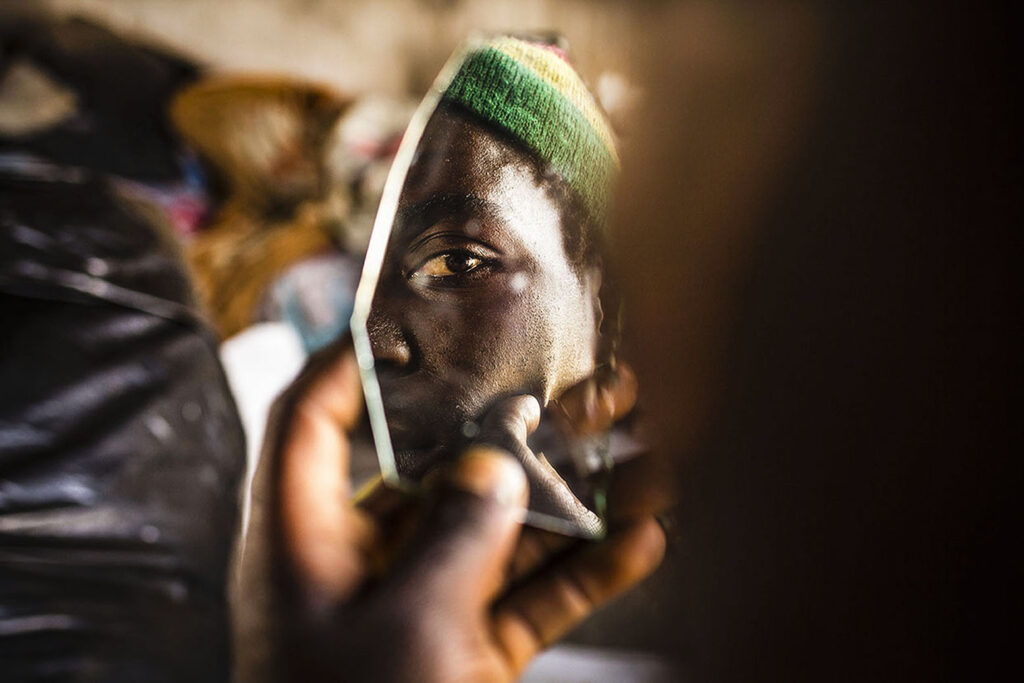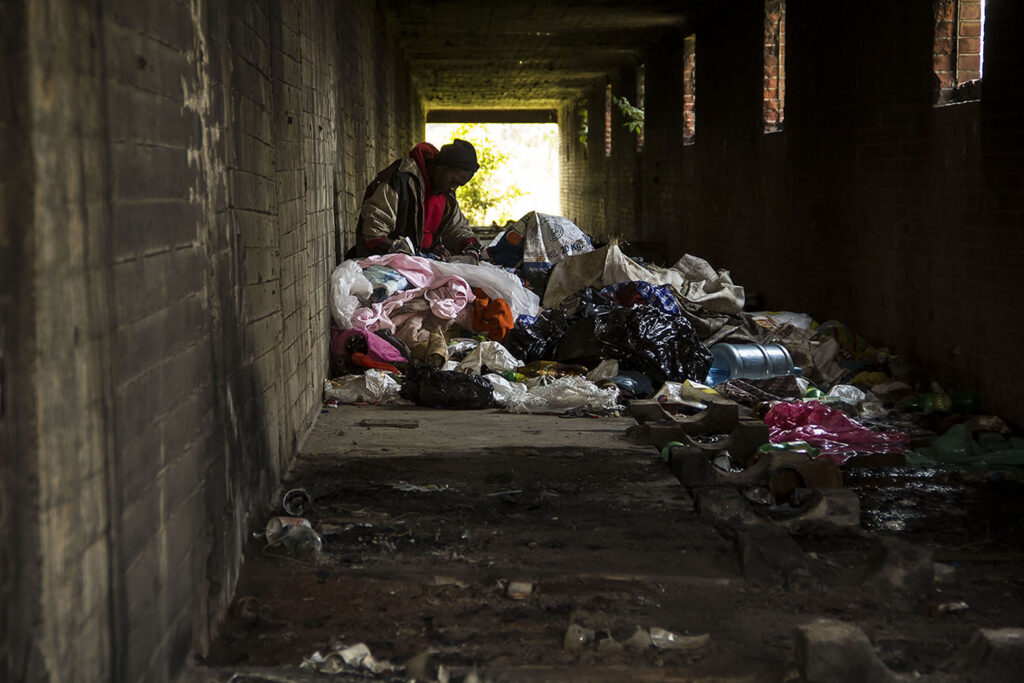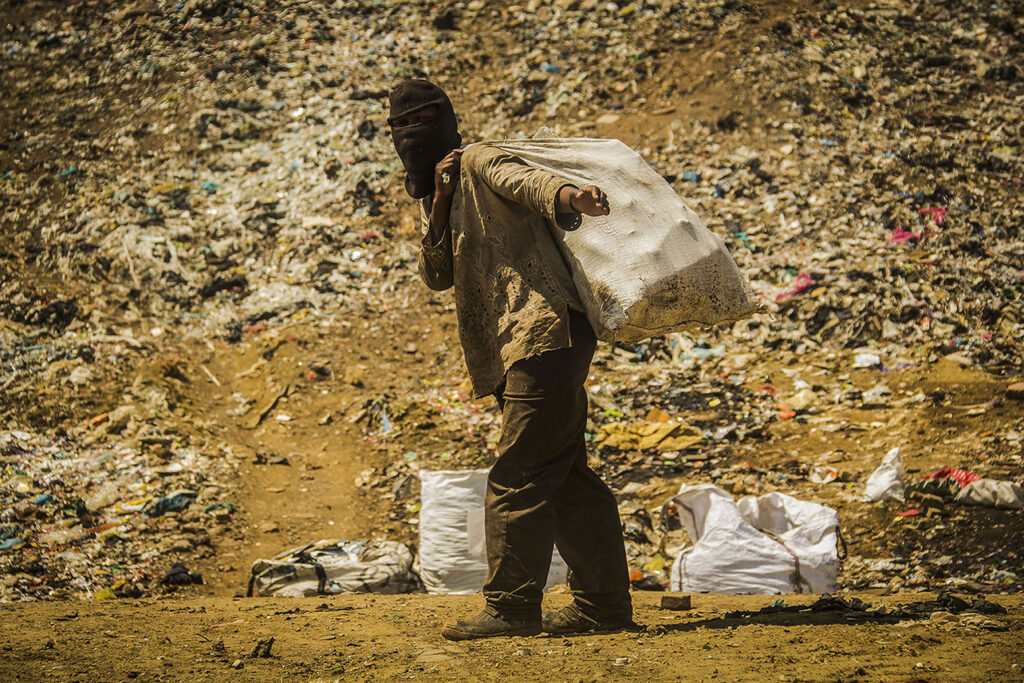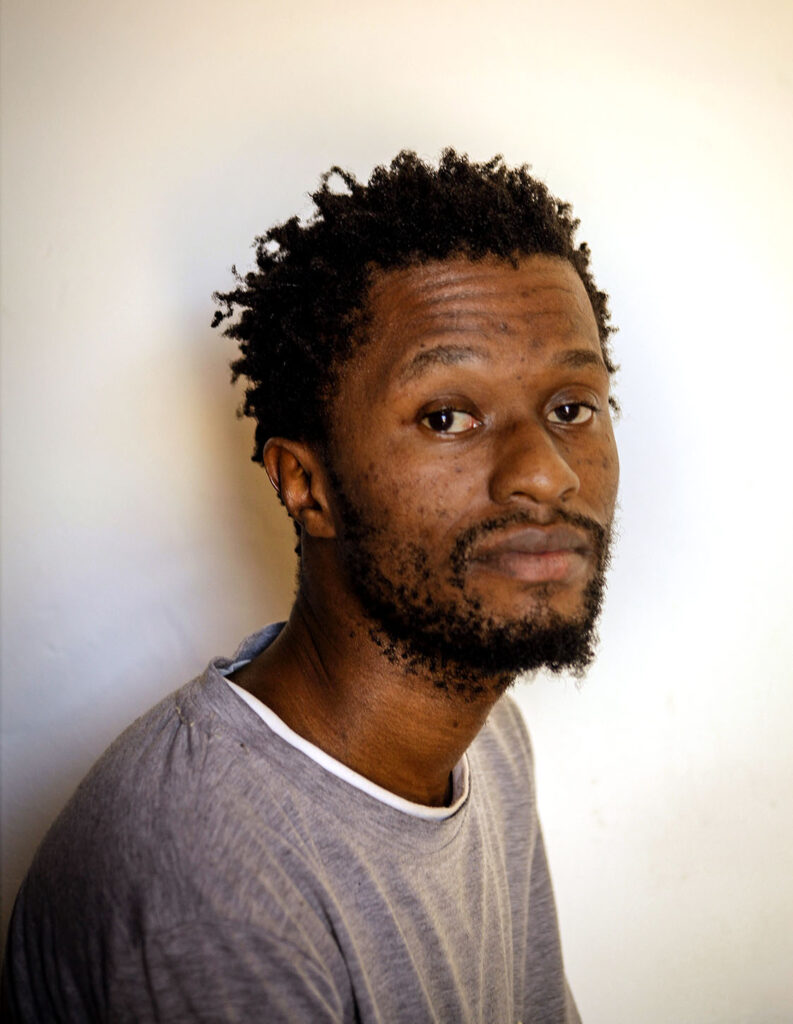“E’Plazini: A Place to Call Home for Waste Collectors” Part I | Johannesburg, South Africa
South African artist, Mpumelelo Buthelezi brings an expansive, humanistic vision to his artwork elevating the voices, lives and work of waste collectors in Soweto. His photographs, at the intersection of documentation, storytelling and activism explore, in his words ‘What counts as work, what is ‘important’ work and who is dignified through that work?’

Artist Statement
In South Africa, one of the most unequal societies on the planet, the informal sector drives the economy. It is estimated that 85, 000 people make a living as waste collectors. They are called waste pickers, a phrase reminiscent of vultures, but contributing more than any other group to recycling within cities and towns, helping divert waste from overflowing landfills.
What my lens has shown me is that cities are complex and incomplete. They have the potential to be key organising units where people, jobs and ideologies are brought together— vessels through which hopes and dreams can be realised; and yet most of the time they fail us.

South Africa’s cities – like yours – remain exploitative, exclusionary, and classist, with little regard for those struggling in the margins that hold the centre together.
The United Nations projects that up to 68% of the world’s population will live in cities by 2050, with rates increasing fastest in Africa. Every wave of urbanisation brings to the fore questions around quality of life and liveability, with jobs posing the biggest challenge. Our notions of work in the city are skewed by capitalism. My camera has questions: what counts as work, what is ‘important’ work and who is dignified through that work?
The waste pickers that I have documented are mostly from the Dryhook area near Devland in Soweto. I started this project after engaging with some recyclers who would come to collect waste around my own neighbourhood. One conversation led to another, resulting in a visit to a waste collection sites, where I listened to the workers’ stories.

I had a duty, then, to document the waste pickers’ daily journey and communicate their stories about how they make a living through this work that is more important than it looks. Waste pickers collect recyclable material around the city – scrap metal, plastic bottles, paper, cardboard... They sort and organise the collected material and resell what they have collected to recycling companies. Typically, they receive R3.20 for each kilogram of plastic and R2 per kilogram of cardboard, making somewhere between R40 and R60 a day. Through their recycling methods these individuals are earning a living while also contributing towards environmental sustainability. Individuals, organisations and governments the world over are currently considering and conversing about ‘the future of work’. Most of these conversations place emphasis on automation and artificial intelligence as solutions – with the promise of more time for leisure and “higher order thinking”.

Very few of these conversations are centred on the poor and those who contribute and create a livelihood through the informal sector. The politics of labour and leisure are inextricably linked to the capitalist system that produces and perpetuates poverty. The same system used to oppress and exclude millions of citizens from participating in the fruits of a productive nation. My camera has become an ally in the fight for sustainable change. Hence, that’s why most of the work I produce mostly touches on themes of research concerning sustainable change, issues affecting humans from a human’s perspectives, social documentary (social activism) and religion, just to mention a few. It finds itself at the intersection between documentation, storytelling and activism.

I became determined to use my work to educate society about the important function that waste pickers play in society, most of whom are using this work as a way to uplift themselves and feed their families. The grim side of life is not my only mission. Lately my feet have also led me to Orlando Power Park in Soweto, with its huge twin towers, once a coal-fueled power station, now brightly painted and splashed across tourist brochures. I have been exploring the spaces, the lives and the architectonics of that neighbourhood as it has slowly transformed along with other areas of my township. Soweto, a place of struggle, is also to a place of incredible beauty and vibrancy.
